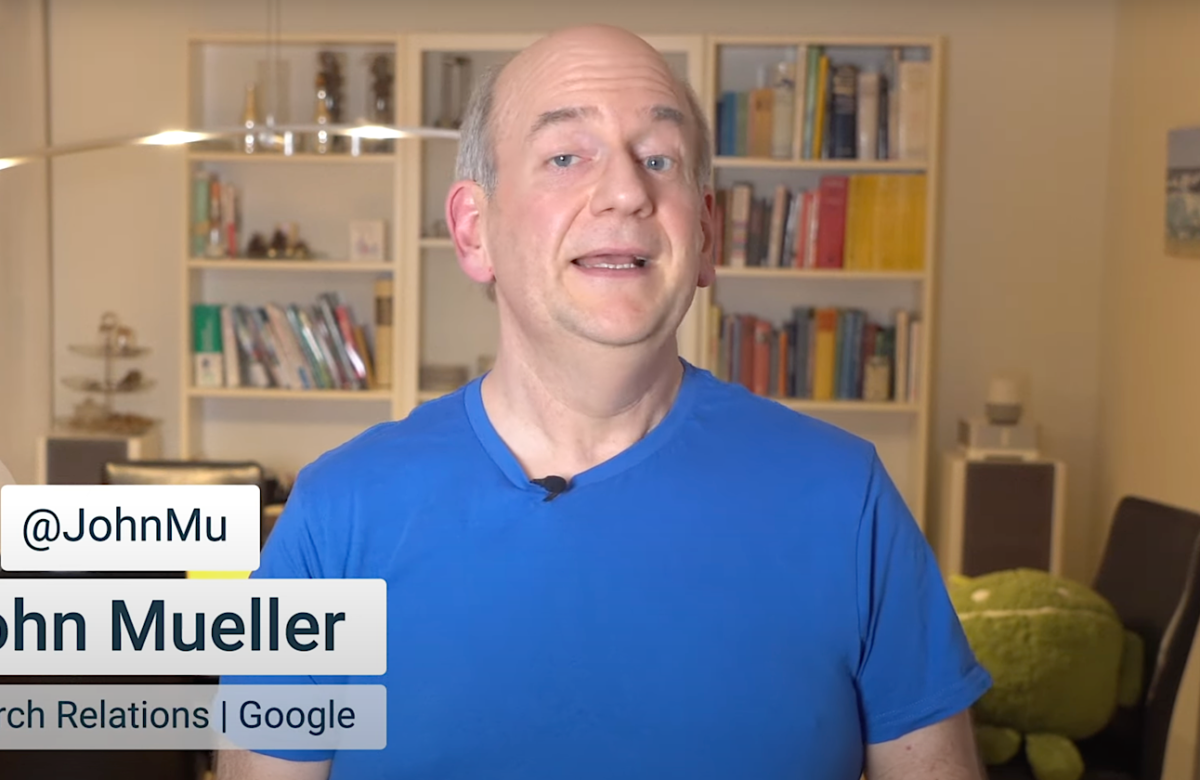
Google’s 2023 Search quality rater guidelines update: Here’s what changed
- Digital MarketingNews
- November 26, 2023
- No Comment
- 60
[ad_1]
It’s been almost a yr since Google final up to date its Search High quality Rater pointers.
In contrast to earlier edits to the Search High quality Pointers, which have launched important, new ideas (like the new E for Experience last year), the latest updates to the Search Quality Guidelines appear far more targeted on consumer intent and desires met.
Google is:
- Refining what it means to supply high-quality search outcomes.
- Serving to high quality raters perceive why sure outcomes are extra useful than others.
This stage of nuance will help clarify why we see sure volatility throughout core updates (in addition to durations outdoors of introduced algorithm updates).
If search high quality raters have given Google ample proof that its outcomes will not be assembly consumer expectations, this may result in substantial intent shifts throughout core updates.
search outcomes for a similar question, earlier than and after main Google updates, makes much more sense if you perceive the granularity with which Google approaches understanding the intent behind a question, and what it means to have high-quality, helpful content.
Listed here are high-level insights into what has modified within the newest search high quality rater pointers replace.
Extra steering round score web page high quality for boards & Q&A pages
Google added a brand new block of textual content to instruct raters on learn how to price the standard of discussion board and Q&A pages, particularly in conditions the place the discussions are both model new, or drifting into “combative,” “deceptive” or “spammy content material.”
A discussion board web page defaults to “medium” if it’s merely a brand new web page that hasn’t had time to gather solutions. However older posts with out solutions must be rated as low high quality.
Google mentions “decorum” just a few instances on this part, indicating that combative discussions that present an absence of respect must be rated as low high quality.
- This can be a good reminder that the standard of feedback on a given web page can impression the general high quality of that web page’s content material, assuming Google can crawl and index the content material within the feedback. Typically, remark sections are uncared for or unmoderated, and in the event that they change into problematic, insulting or disrespectful, this may negatively impression an in any other case good-quality web page.

Moreover, the brand new model of the Search High quality Pointers features a visible instance of what a “medium” high quality discussion board web page appears like on Reddit. The query is just 9 hours previous and has no solutions, so it defaults to a rating of “medium.”
It’s value noting that Google implies there aren’t any different low-quality traits on this web page that in any other case might lean the rating in the direction of “low high quality” for brand new discussions.

Under is the instance Reddit URL Google used on this case:
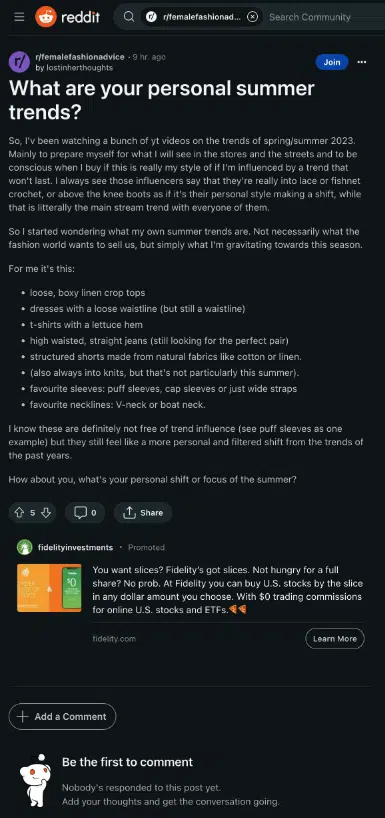
A fast addition concerning the significance of a location to a question
Google added a brief snippet concerning the significance of consumer location to understanding a question. For searches searching for close by locations, location is vital, whereas generic questions like “how does gravity work” have the identical reply, whatever the consumer’s location.

- Curiously, Google felt this nuance was value including to the Rater Pointers. Whereas it appears self-explanatory, it’s true that the extent to which a search question has a inbuilt “native intent” can have a significant impression on the forms of outcomes that may finest reply that question.
Increasing on “Minor Interpretations”
Google added a deeper clarification about its definitions for “Minor interpretations.”
Minor interpretations describe a scenario when a question can have a number of meanings, and the minor interpretations are the least more likely to be the generally anticipated meanings of the question.
Inside minor interpretations, Google launched:
- “Affordable minor interpretations,” which assist “fewer customers” however are nonetheless useful for search outcomes.
- “Unlikely minor interpretations,” that are theoretically potential however extremely unlikely.
“No probability interpretations” are interpretations of a question which can be extremely unlikely for the consumer to be searching for. Google offers the instance of an “overheated pet” when the searcher varieties “sizzling canine” (though I really feel that this interpretation is extra believable than a “no probability” score!).
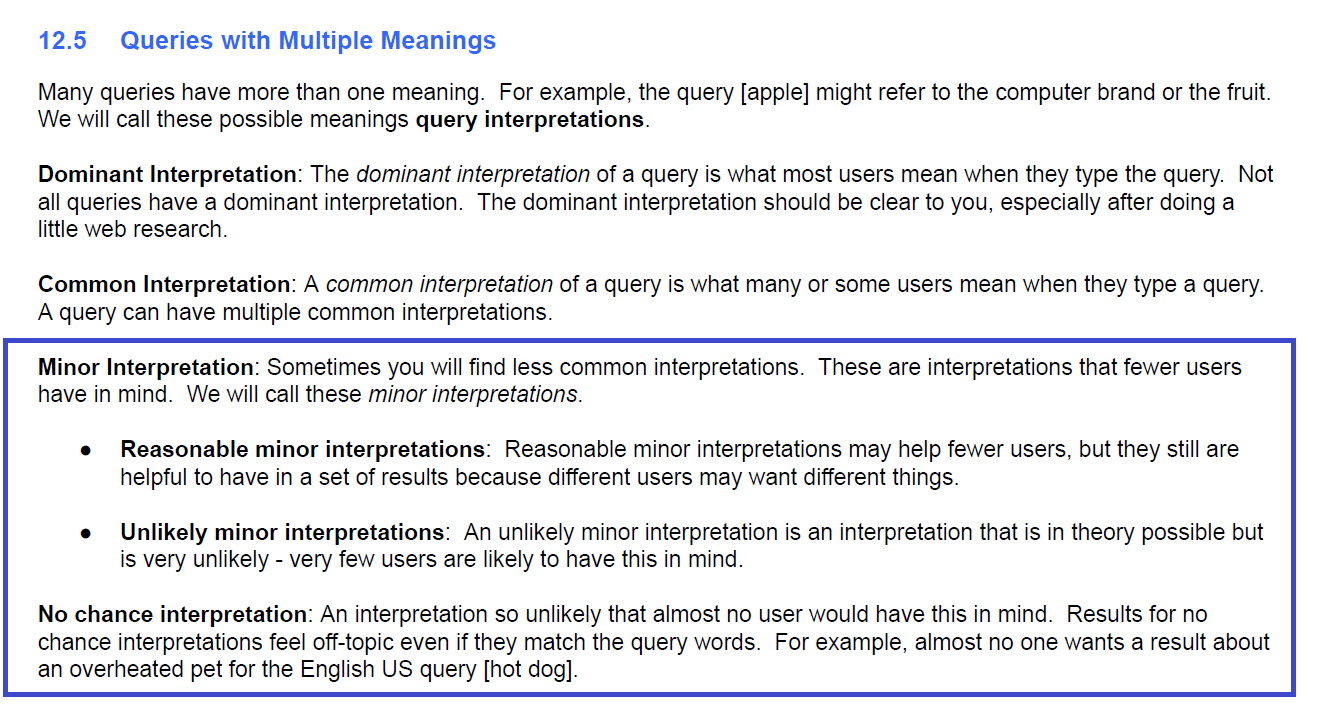
Google additionally added some new visible examples of learn how to interpret these definitions. For instance, an “unlikely minor interpretation” of the search question “Apple” could be the U.S. metropolis, Apple, Oklahoma.
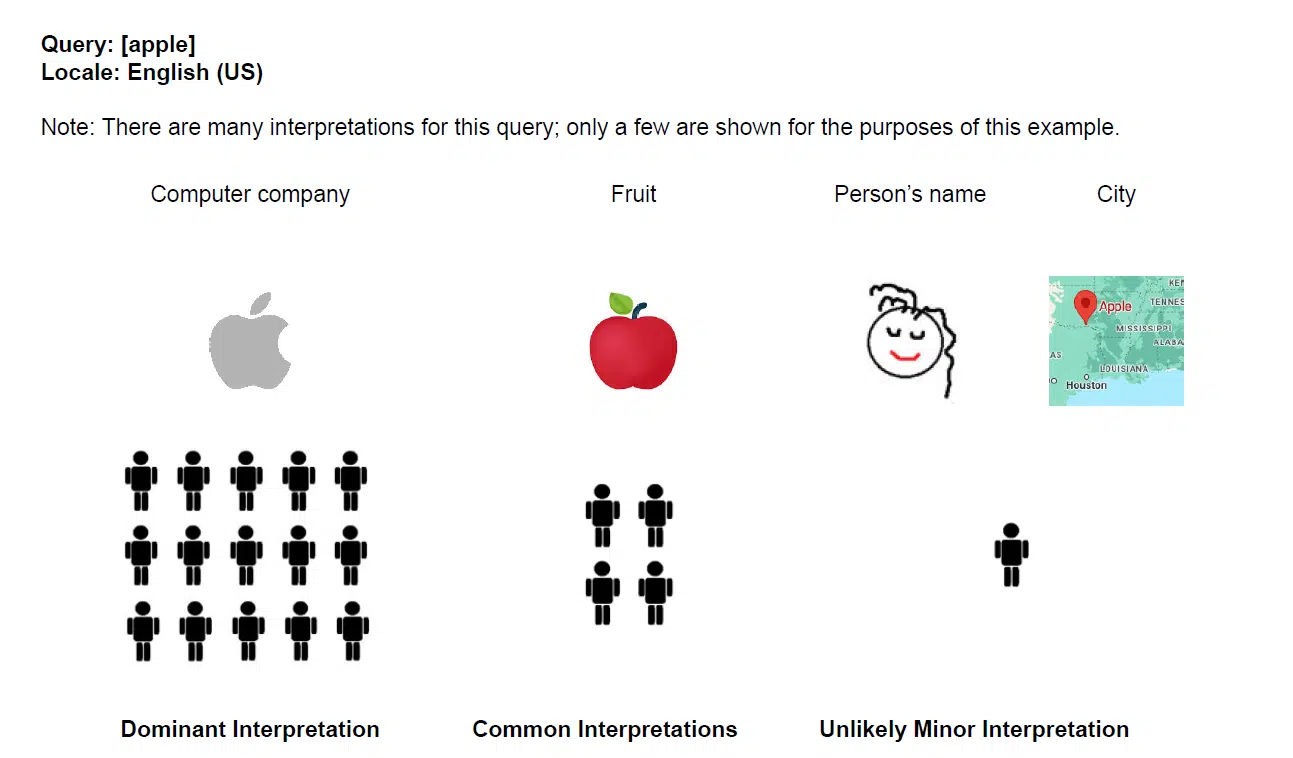
Additional defining ‘Know Easy’ and ‘Do’ queries
Google added a number of new examples of what forms of queries are not “Know Easy” queries.
“Know Easy” queries are outlined as queries that search a really particular reply, like a truth or a diagram, that may be answered in a small quantity of house, like one or two sentences.
Google added three new examples of queries which can be not Know Easy queries: when customers wish to browse or discover a subject, discover inspiration associated to a subject, or are searching for private opinions and views from actual individuals.
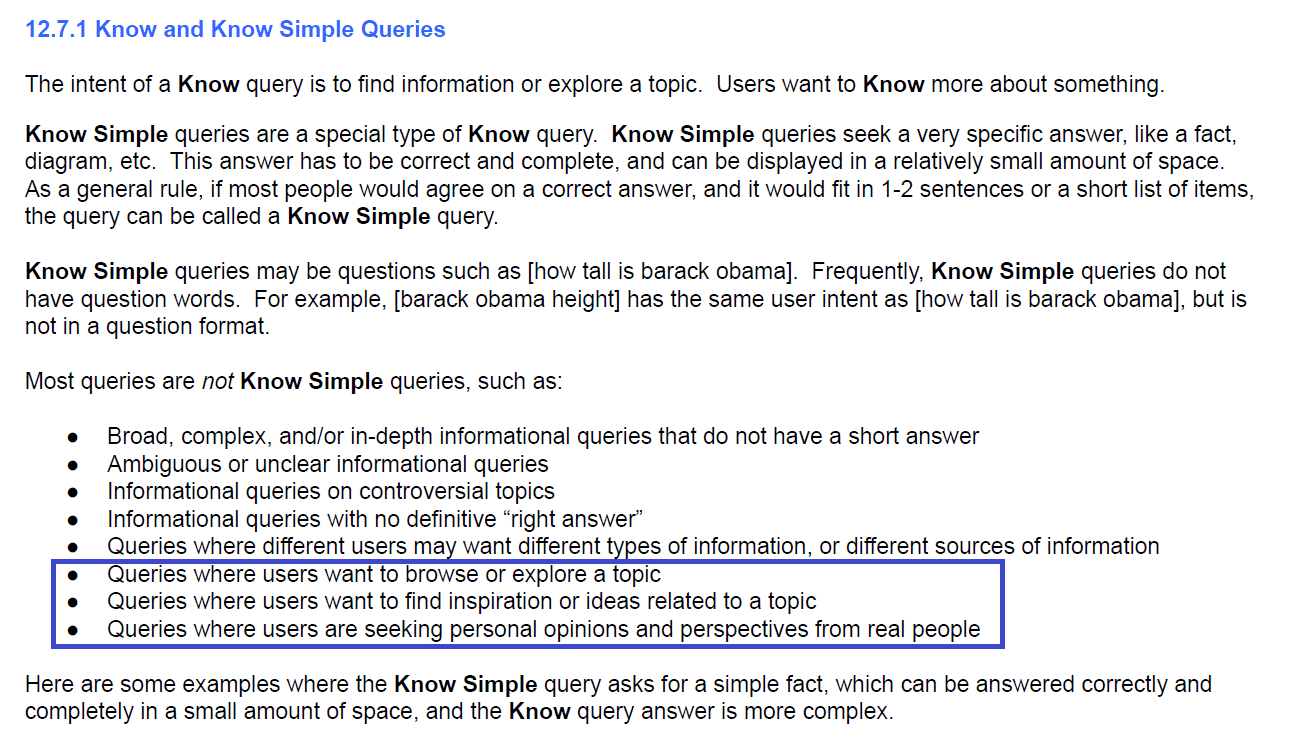
What makes this addition fascinating: The language used right here is sort of much like the language Google makes use of when describing the worth of SGE (Search Generative Experience). For instance, the next language comes from the primary SGE web page:
- “Dive deeper on a subject in a conversational means.”
- “Entry the high-quality outcomes and views that you just count on from Google.”
- “I wish to know what individuals suppose to assist me decide”
Maybe – and that is purely hypothesis – the suggestions Google will get from high quality raters about whether or not queries may be categorised as “Know Easy” (or not) will help them perceive when to set off SGE.
Alongside the identical traces, Google added two new examples of “Know Easy Queries” and “Know Queries” – the underside two rows of the under desk – to supply further context about when a question is definitely answered or when the reply is extra open ended.
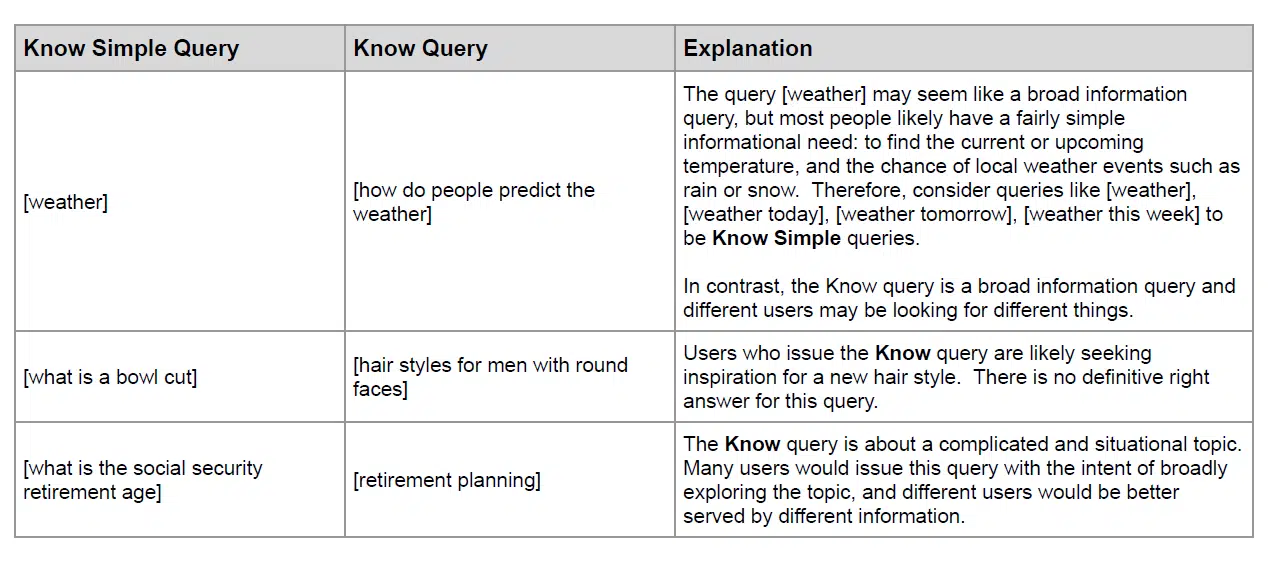
Google additionally added extra examples of “Do” queries to the desk under, beginning with [shape of you video] and all queries under it. The three new examples symbolize queries that may be finest answered with movies, photos or how-to guides.
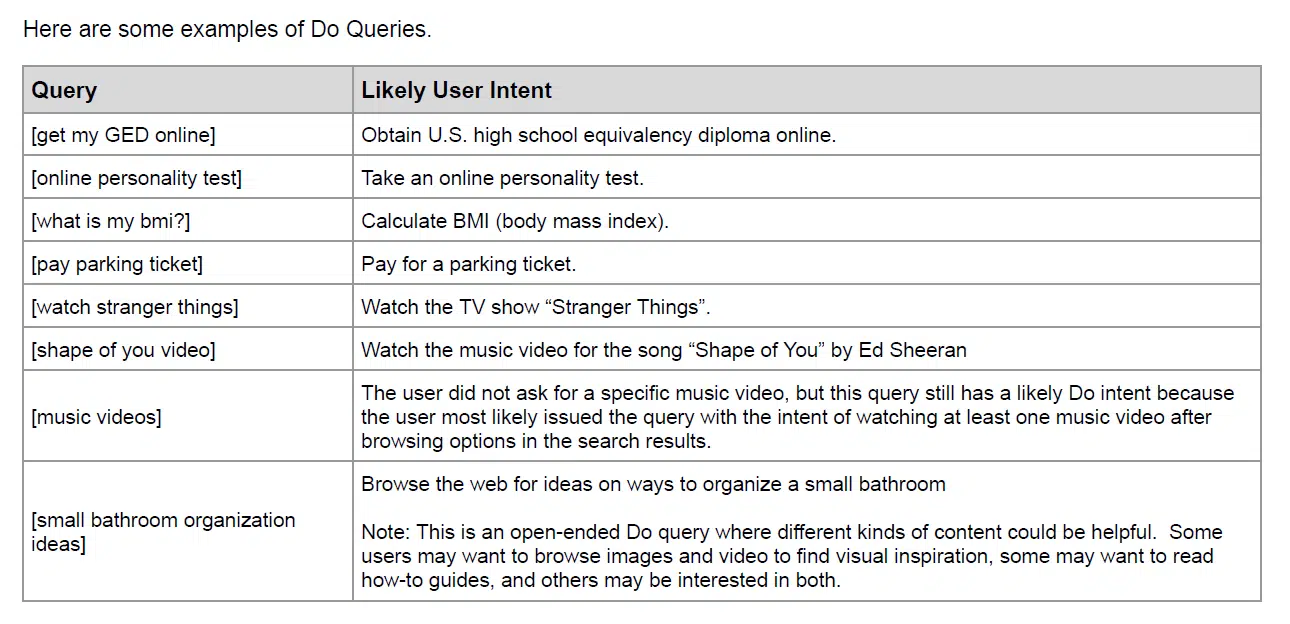
Additional refining consumer intent
Google launched new language round consumer intent by classifying what’s an unlikely consumer intent for a set of key phrases.
Within the desk under, Google added a second column to clarify unlikely intents for the key phrases Harvard and Walmart. This limits the intent of those key phrases to a extra cheap consumer intent, quite than a totally open-ended set of potential solutions.
Customers looking for “Harvard” could possibly be searching for numerous particulars concerning the college, however are in all probability not searching for a particular course.

Examples of Google’s SERP options that extremely meet consumer wants
Google offers a desk with numerous examples of search queries, the consumer’s location, and the consumer’s intent. It then exhibits the search end result, and charges the extent to which the end result met the expectations of the consumer (“Wants met”).
Google additionally gives a proof about why these explicit outcomes are ranked as “extremely assembly” the expectations of customers.
On this new model of the QRG, Google added and adjusted a few of the examples within the “Extremely Meets (HM)” outcomes, the best potential score of assembly consumer wants “for many queries.”
One instance of a brand new instance Google added to this listing is one the place the consumer is searching for “close by espresso outlets.” Google offers a screenshot of a Google Maps native pack with three espresso outlets listed, and explains why this end result extremely, however not absolutely, meets the consumer’s expectation (it doesn’t listing each potential espresso store).
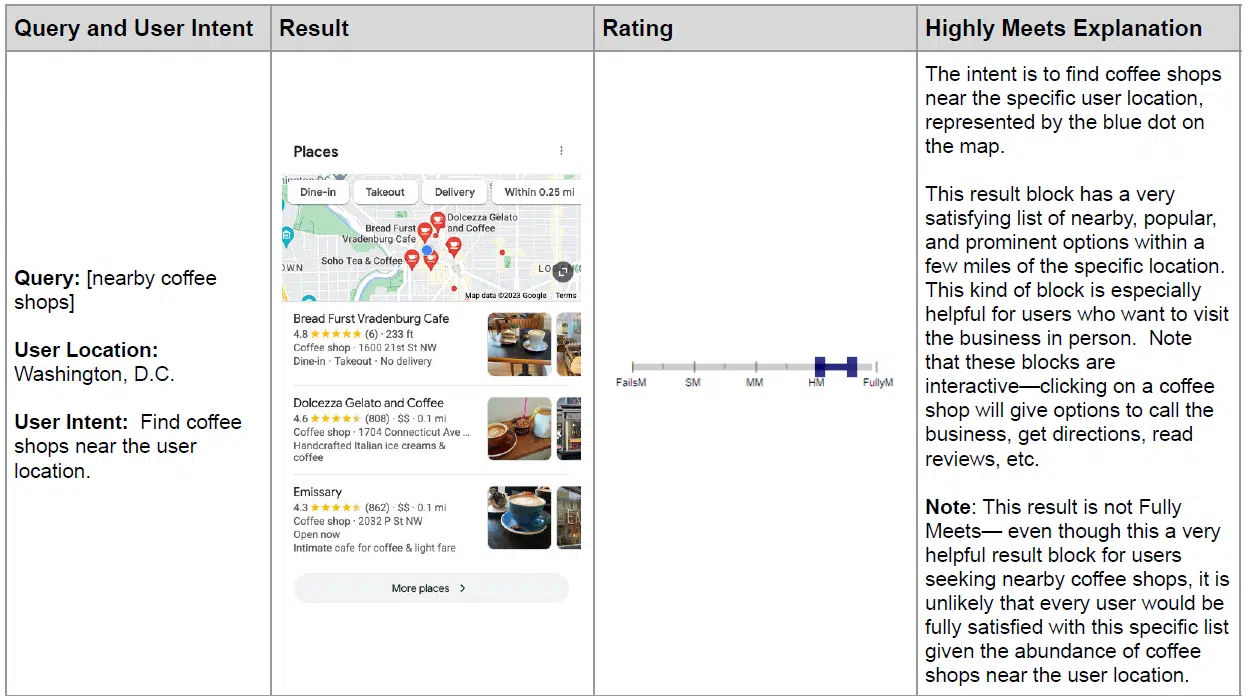
Google even added a TikTok video for example of a end result that extremely meets the wants of customers wanting an “world wide tutorial” for soccer.

These are simply a few of the new examples, which appear to supply a extra trendy view of various outcomes, each from exterior websites in addition to Google’s personal SERP options.
Dig deeper. An SEO guide to understanding E-E-A-T
Opinions expressed on this article are these of the visitor creator and never essentially Search Engine Land. Workers authors are listed here.
[ad_2]
Source link






